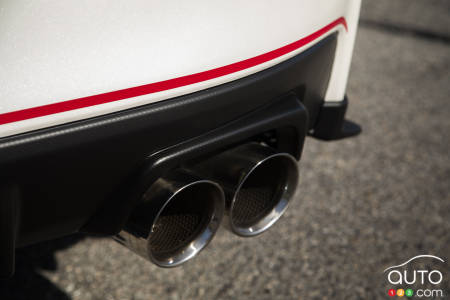Have you ever thought about personalizing your vehicle with a set of new wheels or by adding a spoiler? What about tinting the windows, or adding vinyl stickers to the exterior? These are all very common modifications made by vehicle owners who want to give their ride a personal touch. However, what many people don’t realize is that you may need to inform your insurance company.
When you first insure your vehicle, the insurer will ask you a litany of questions about it. You then enter into a contract with the company to insure that vehicle. If something on the vehicle is changed, it’s very possible the contract could be voided if they find out you withheld information from them, including changes made to the vehicle after the insurance contract came into effect.
Which means that, you must tell your insurer about any and all modifications you make; they will then adjust your rate accordingly. Sorry to say, the most likely outcome will be an increase in your rate.
.jpg?scaledown=450)
Yes, most vehicle modifications increase the cost of insurance, except in cases where they prevent theft or improve safety (for example anti-theft systems or backup cameras). Insurance companies operate based on risk and if they determine that a change made to a car might increase the risk of an accident or theft, they will hike your rate.
Risk enhancers
Adding more power to the engine by way of a turbocharger or nitrous oxide kit definitely increases the risk of an accident in the view of an insurance company. It tells them that you’re a performance enthusiast and this logic isn’t very hard to understand.
Where there might be a grey area is in the case of smaller modifications. Do aftermarket wheels increase the risk of an accident? The increase in risk may be small, but the answer is yes. An owner who adds fancier wheels to their car may be more at risk of an accident. Same with tinted windows. Every single modification made to the vehicle has to be reported.
Does this mean you will automatically have your policy cancelled because you installed a slight tint on the windows that is barely perceptible? No, of course not. The insurance company may even tell you not to worry about such small changes, but it’s in your best interest to make sure you tell them – just in case.

Let’s say, for instance, that you added a cold-air intake to your vehicle. The filters for these intakes are often placed lower down to suck up cold air but what if it becomes momentarily submerged in water and the engine is damaged? This otherwise low-risk modification that you didn’t think to report to the insurance company will now cost them thousands of dollars for an engine repair, and they could very well decide to refuse to pay. What if your oversized wheel with a thin tire gets smashed in a pothole and is the cause of an accident? You get the idea.
Check with your insurer
There are many insurance companies out there, and each of them has their own opinions on what even constitutes a modification. It’s always best to check with the company you deal with before you purchase any items, to see whether or not they will affect your policy.
Don’t be afraid to shop around for the best insurance provider and the best plan. Some insurers are more open-minded than others when it comes to modified cars. There are even specialty insurers who deal specifically with modified cars, right-hand-drive cars, classic cars and other specific cases.
Do a search online to gather information about what other people have been told by their insurance companies. Local car communities like MontrealRacing.com contain vast amounts of information and testimonials from people who have asked the same questions before. In other words, do your homework – it could pay off!




